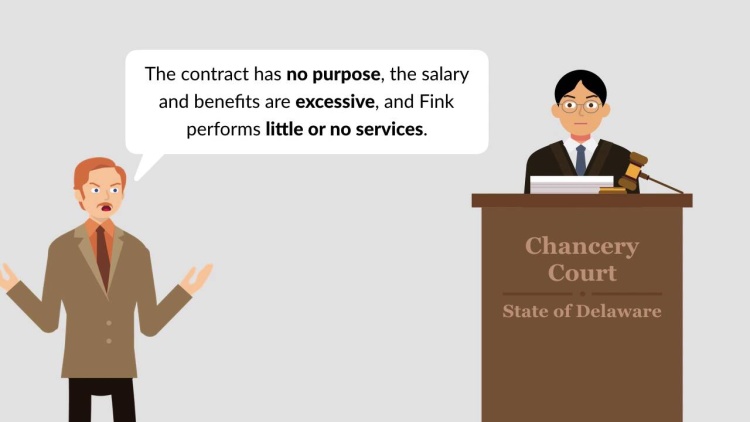Aronson v. Lewis
Delaware Supreme Court
473 A.2d 805 (1984)
- Written by Mary Pfotenhauer, JD
Facts
Harry Lewis (plaintiff) owned stock in Meyers Parking System, Inc. (Meyers), a Delaware corporation. Leo Fink was a director of Meyers and owned 47 percent of its outstanding stock. Meyers’s directors approved a lucrative employment agreement for Fink and made interest-free loans to him. Lewis brought suit against Meyers and its directors (defendants), alleging that the transactions were approved only because Fink had personally selected the directors of Meyers and that the transactions had no business purpose and were a waste of corporate assets. The complaint stated that no demand was made on the board of directors to address the alleged wrongs because (1) the directors participated in the wrongdoings; (2) Fink selected the directors and thus controlled the board; and (3) litigation brought by the directors would require them to sue themselves, precluding effective prosecution. Meyers and its directors filed a motion to dismiss based on Lewis’s failure to make a demand or to demonstrate that such a demand would be futile. The Court of Chancery denied the motion to dismiss, finding that the allegations in the complaint raised a reasonable inference that the business-judgment rule did not protect the directors’ actions and that the board therefore would not have been able to impartially consider and act on any such demand. Meyers and its directors filed an interlocutory appeal.
Rule of Law
Issue
Holding and Reasoning (Moore, J.)
What to do next…
Here's why 907,000 law students have relied on our case briefs:
- Written by law professors and practitioners, not other law students. 47,100 briefs, keyed to 996 casebooks. Top-notch customer support.
- The right amount of information, includes the facts, issues, rule of law, holding and reasoning, and any concurrences and dissents.
- Access in your classes, works on your mobile and tablet. Massive library of related video lessons and high quality multiple-choice questions.
- Easy to use, uniform format for every case brief. Written in plain English, not in legalese. Our briefs summarize and simplify; they don’t just repeat the court’s language.





